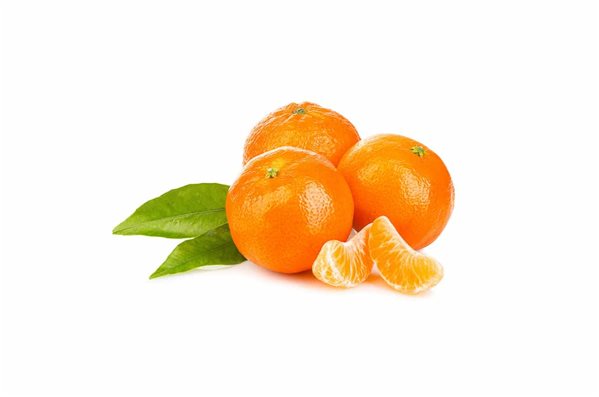Origin: Valencia. The sweet mandarin is the sweetest citrus fruit we have. It is the fruit of the mandarin tree and its interior is made up of segments with juice. It is most similar to an orange, although it is smaller and less acidic in flavor. Its best season is from November to March.
Properties and benefits:
Mandarins are perfect for recovering after a great physical effort, as they contain a large amount of vitamins (A, C) and minerals such as calcium, phosphorus, and potassium among others. Because they contain a lot of potassium, water, and citric acid, mandarins have a diuretic effect. They help absorb iron, although they do not contain much, the combination is what helps with absorption. Thanks to potassium, they protect our heart. Their pectin content helps control cholesterol. Thanks to their fiber, they are good for preventing intestinal problems.
Nutritional value per 100g:
Calories 37
Carbohydrates 9g
Fiber 1.9g
Potassium 185mg
Magnesium 11mg
Calcium 36mg
Vitamin C 35mg
Folic acid 21mcg.
Conservation and tips:
Ideally, store mandarins in a cool environment with sufficient ventilation, without stacking them to prevent them from becoming damp.
Recipe and uses in the kitchen:
The most common use for mandarins is to consume them fresh, but there are also many recipes where you can include this delicious fruit and give it an exotic touch. Including them in juices or smoothies is also an excellent option. For example, a juice with kale, spinach, carrots, and mandarins.
Translated automatically

 ¡ Buying this product you get {{calculatedProductMenttos()}} menttos !
¡ Buying this product you get {{calculatedProductMenttos()}} menttos !


